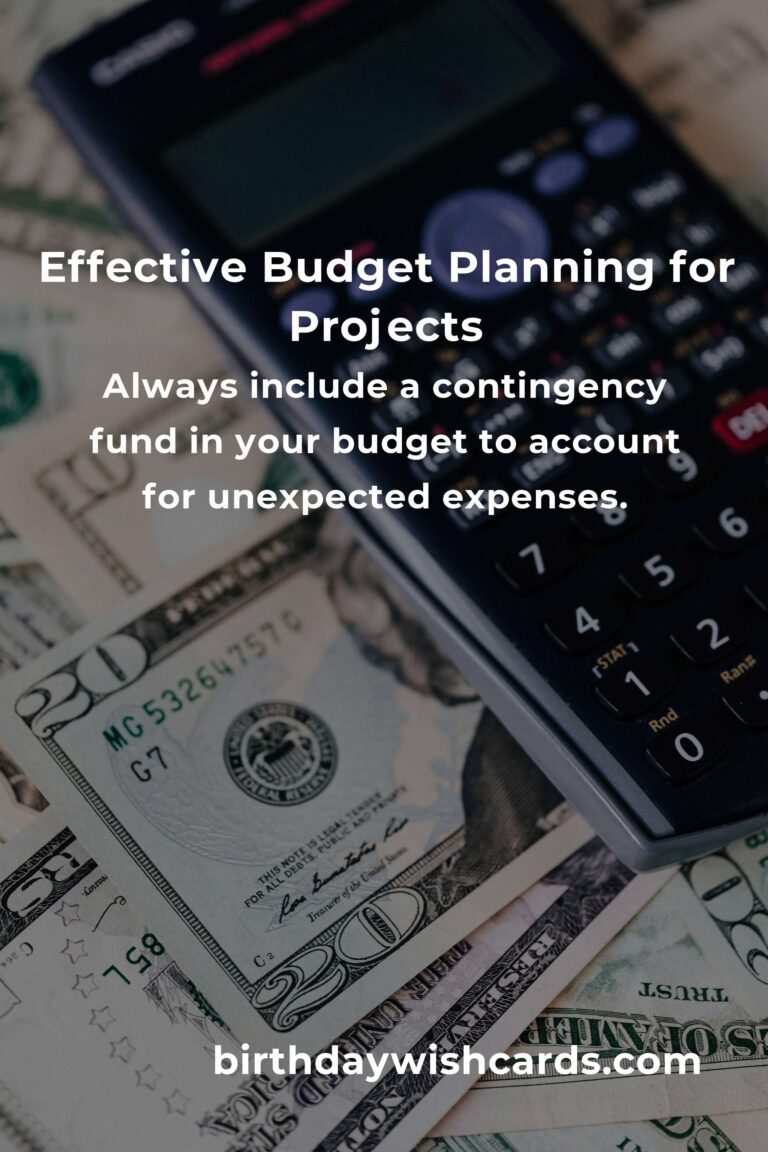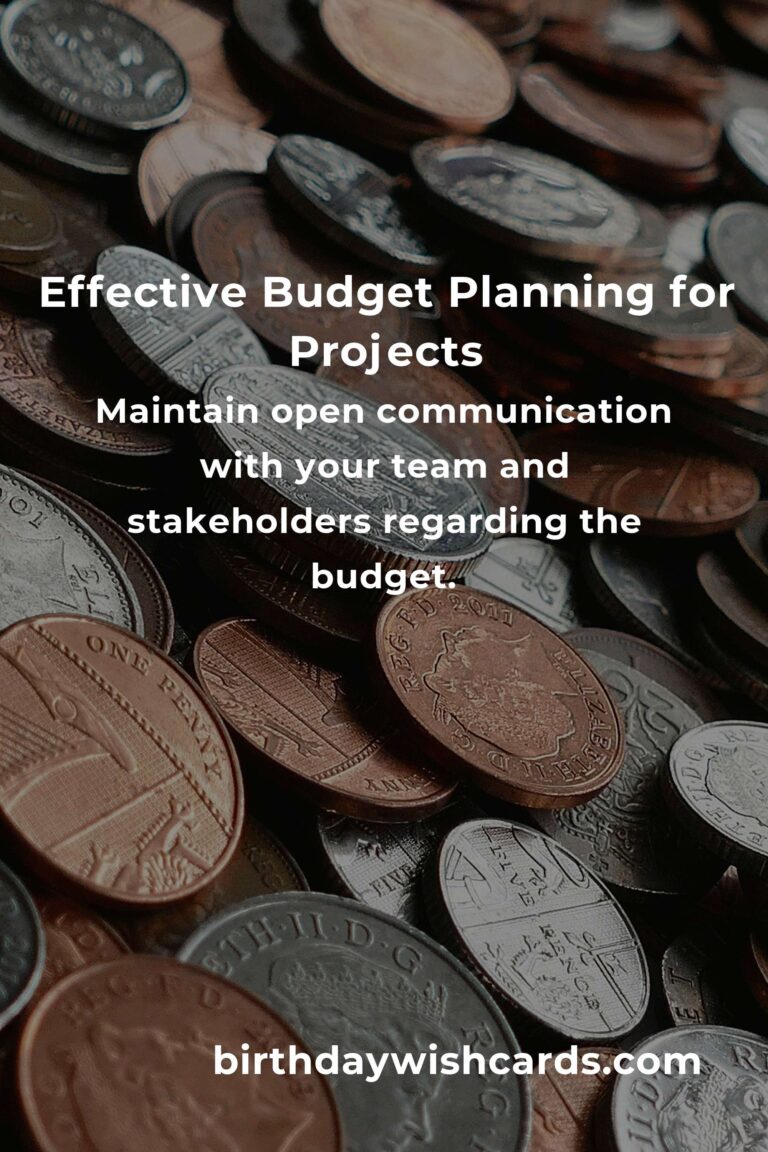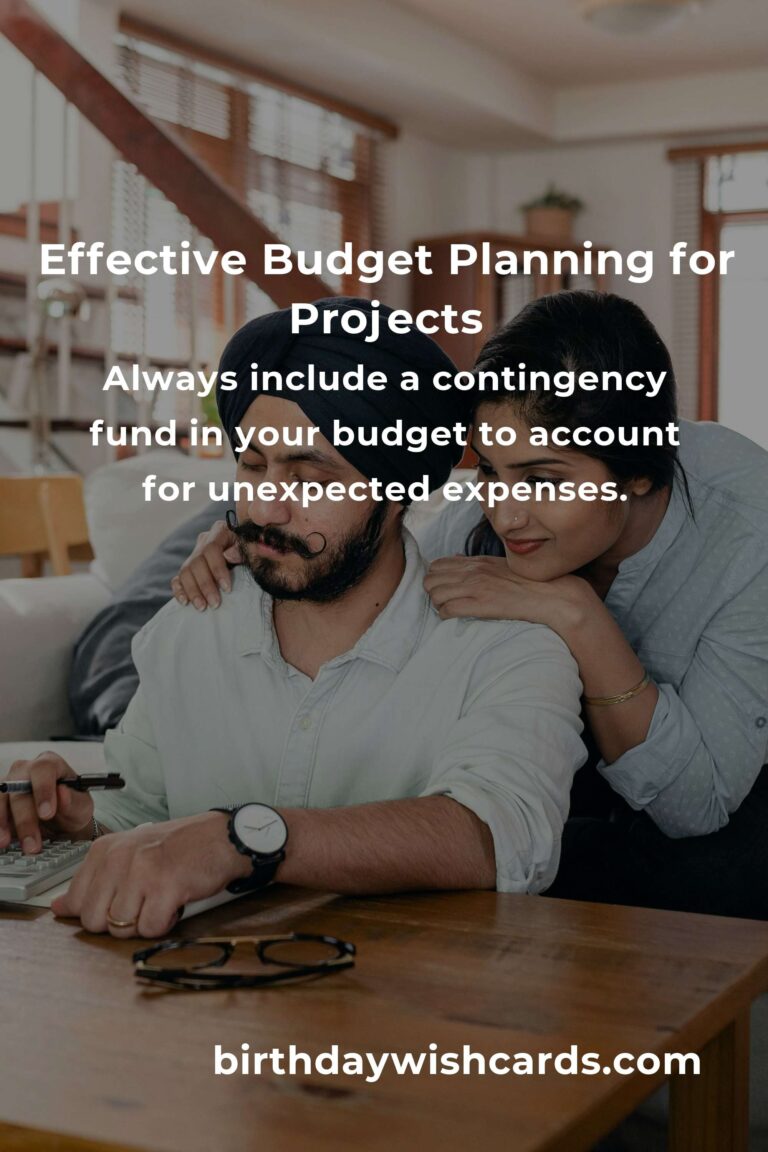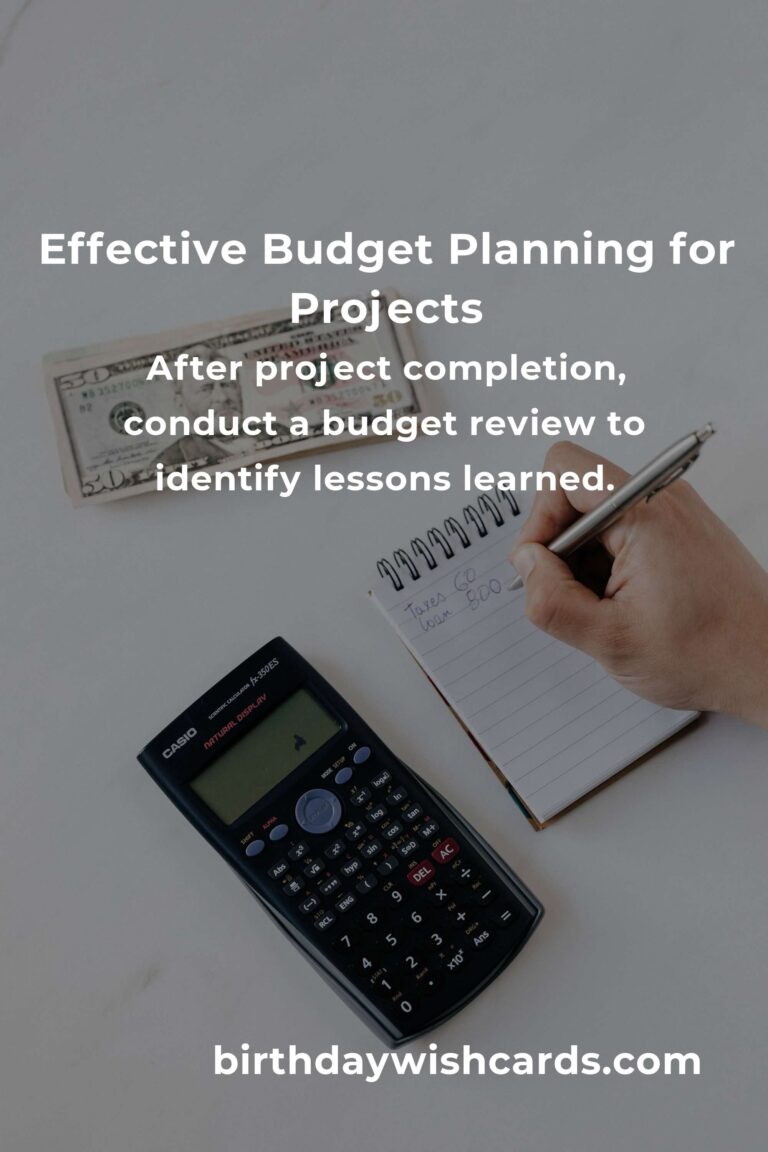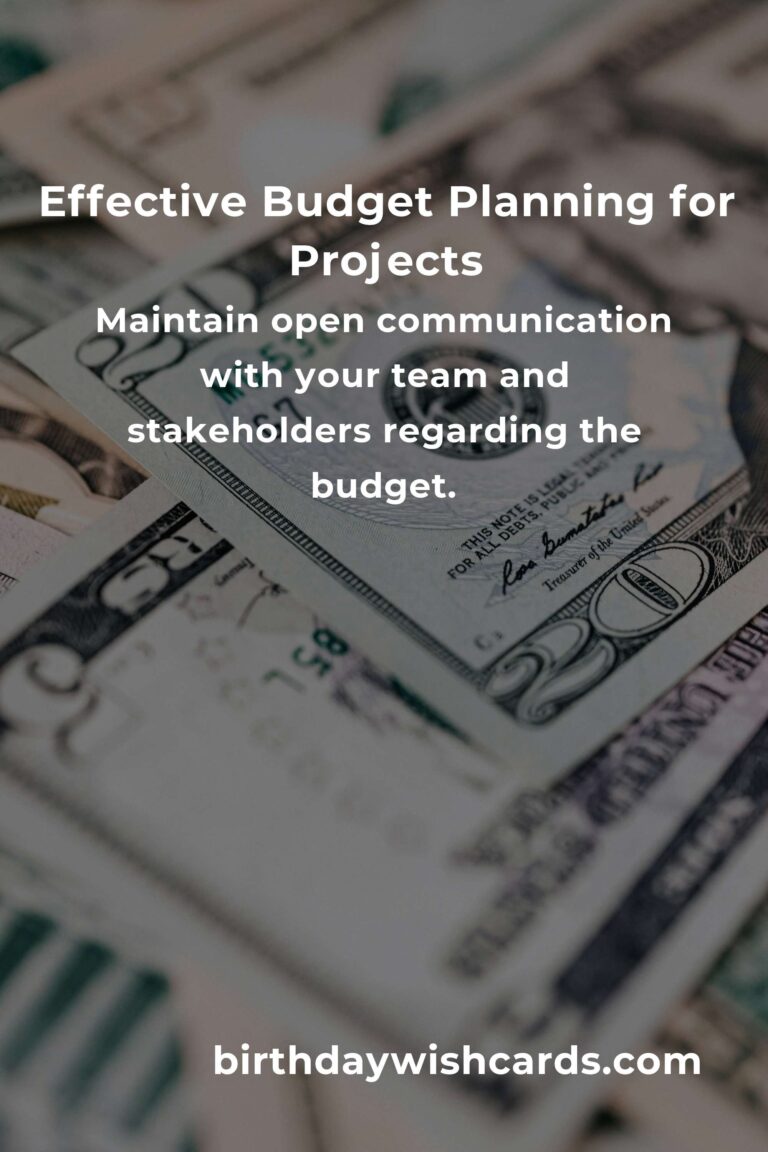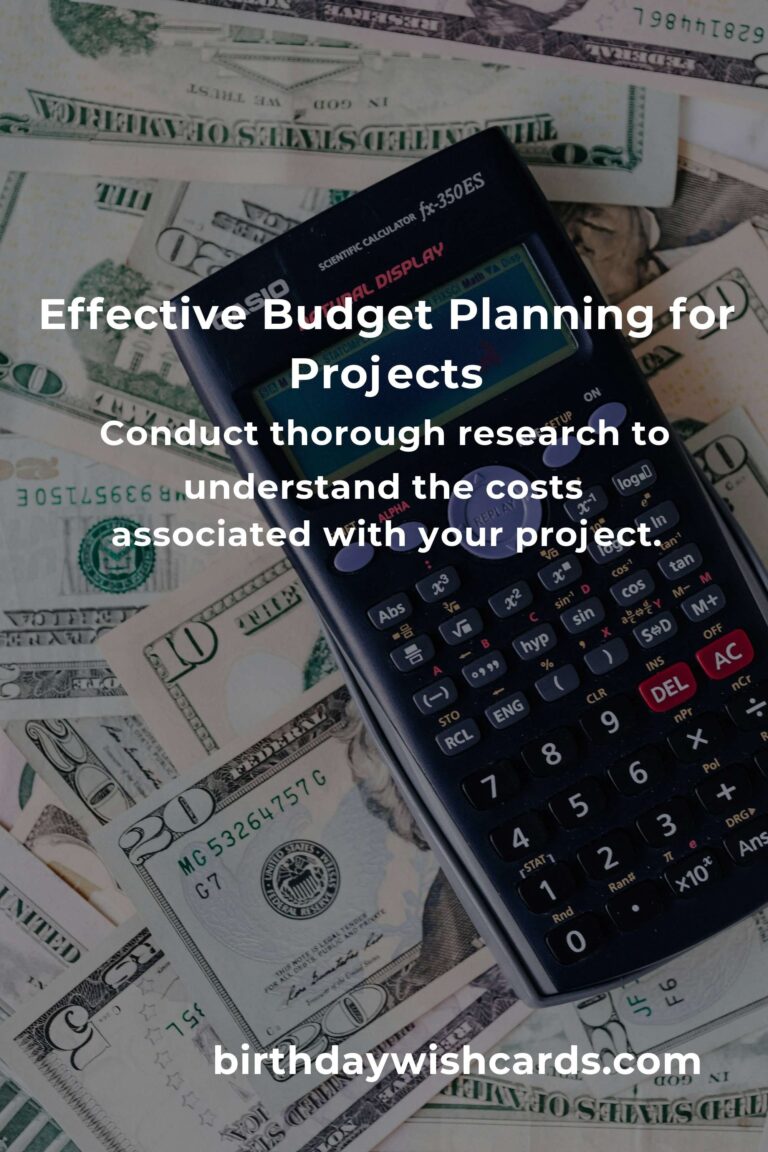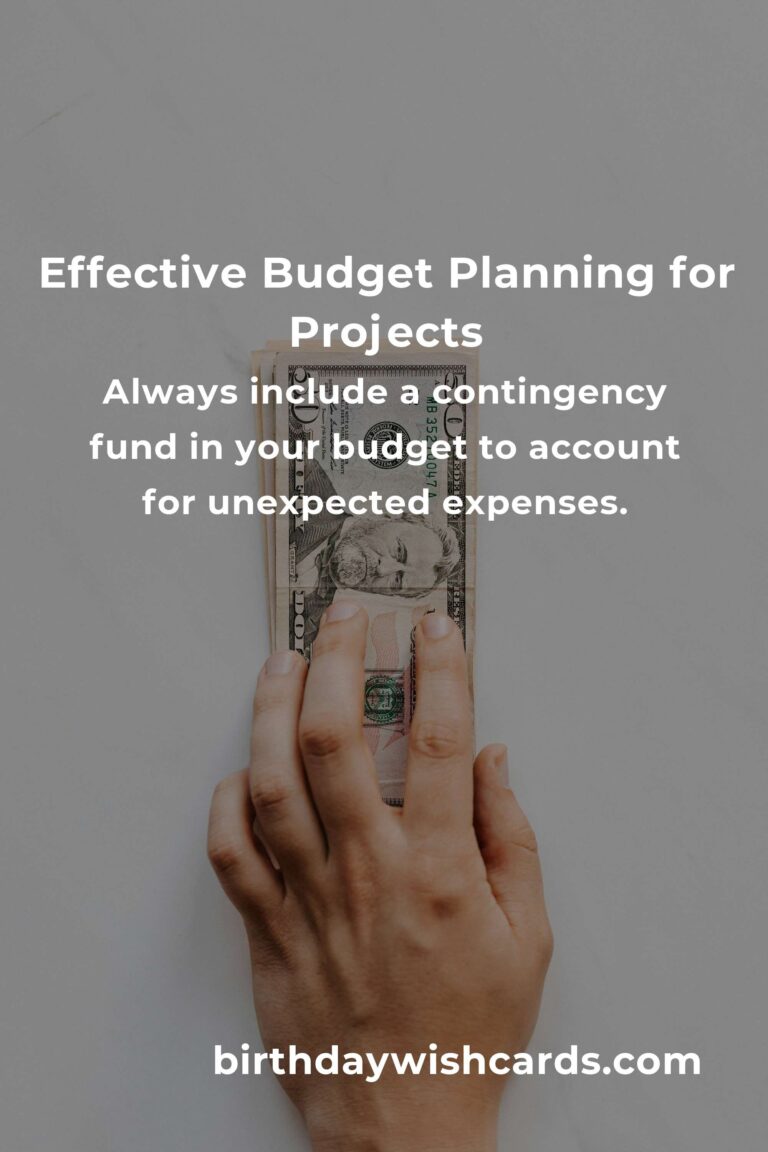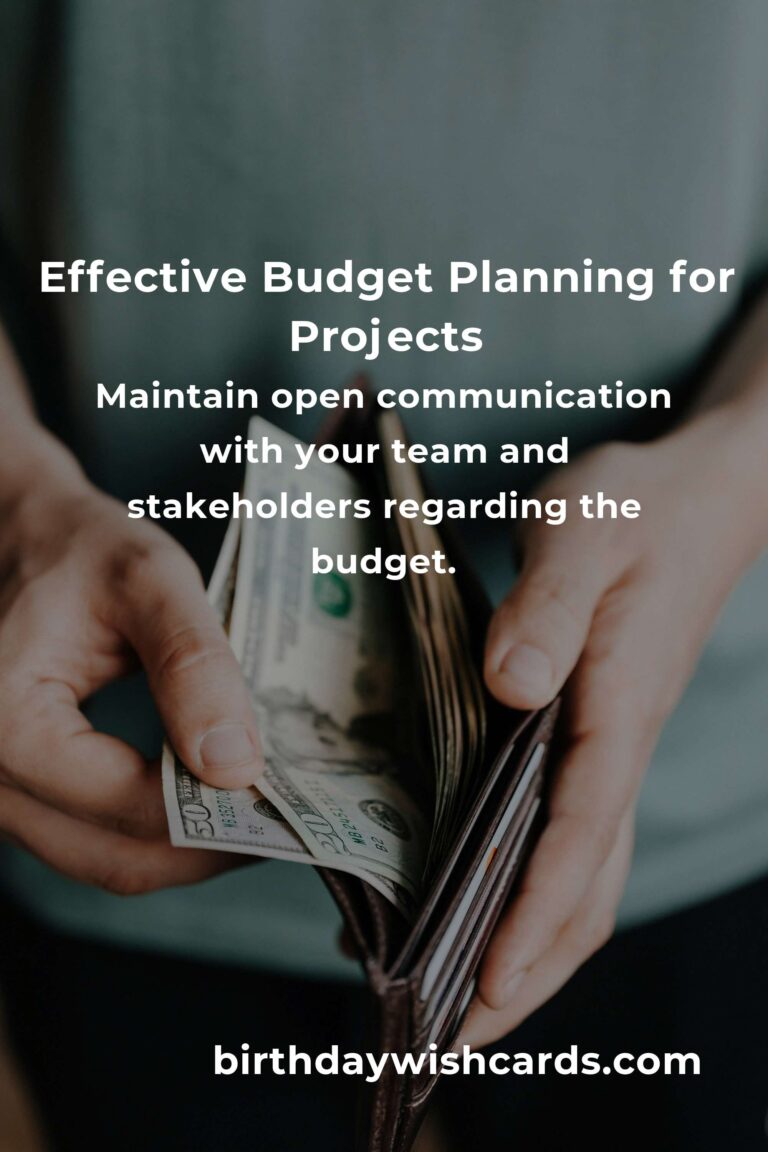
Effective project budgeting is crucial for the success of any project. It ensures that the project stays on track and within financial limits. Here are ten essential tips to help you budget your projects effectively.
1. Understand the Project Scope
Before you start budgeting, it’s important to have a clear understanding of the project’s scope. This includes defining the project’s objectives, deliverables, and the resources required. A well-defined scope helps in allocating the right amount of resources and funds.
2. Research Costs Thoroughly
Conduct thorough research to understand the costs associated with your project. This includes direct costs like materials and labor, as well as indirect costs such as overheads and administrative expenses. Accurate cost estimation is crucial for setting a realistic budget.
3. Use Historical Data
Leverage historical data from past projects to inform your budget. This data can provide valuable insights into cost trends and help you anticipate potential expenses. Analyze past budgets to identify areas where you can save money or allocate funds more effectively.
4. Involve Stakeholders in Budget Planning
Engage stakeholders in the budgeting process to ensure that all perspectives are considered. Stakeholders can provide insights into potential risks and opportunities, helping to create a more comprehensive budget.
5. Set Contingency Funds
Always include a contingency fund in your budget to account for unexpected expenses. This financial cushion can help you manage unforeseen challenges without derailing the project.
6. Monitor Expenses Regularly
Regularly monitor project expenses to ensure that spending aligns with the budget. Use project management tools to track expenses in real-time and make adjustments as necessary to stay on track.
7. Prioritize Spending
Identify and prioritize essential expenses that are critical to the project’s success. Allocate funds to these areas first, and make cuts in less critical areas if necessary.
8. Review and Adjust the Budget
Periodically review the budget to assess its effectiveness. Be prepared to make adjustments based on changes in project scope, market conditions, or other factors that may impact costs.
9. Communicate Transparently
Maintain open communication with your team and stakeholders regarding the budget. Transparency helps build trust and ensures that everyone is aware of financial constraints and goals.
10. Learn from Each Project
After project completion, conduct a budget review to identify lessons learned. Analyze what worked well and what didn’t, and use these insights to improve future budgeting processes.
By following these ten tips, you can create a project budget that is realistic, flexible, and effective in guiding your project to success. Remember, the key to successful budgeting lies in planning, monitoring, and continuous improvement.
Effective project budgeting is crucial for the success of any project. Conduct thorough research to understand the costs associated with your project. Always include a contingency fund in your budget to account for unexpected expenses. Maintain open communication with your team and stakeholders regarding the budget. After project completion, conduct a budget review to identify lessons learned.
#ProjectBudgeting #BudgetingTips #ProjectManagement


